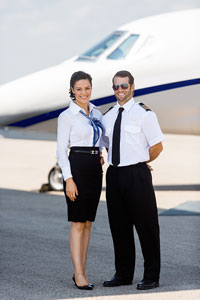Get started now.


Travel, tourism, and hospitality schools and colleges can help you learn what it takes to create exceptional guest experiences. By completing post-secondary training in this field, you can develop the leadership, customer service, and communication skills that can lead to enriching and wide-ranging opportunities across Canada and around the world.
Sponsored Listings
Post-secondary training in tourism and hospitality can help you acquire the knowledge and abilities that can help you stand out to potential employers.
Programs related to travel, tourism, and hospitality can last anywhere from two months to four years, depending on the credential you pursue.**

 Certificate programs generally last between six and 12 months.** Some provide a general overview of the industry while others have a very specific focus, such as adventure guiding. Note that some certificate programs are aimed at people currently working in the industry who want to upgrade their education.
Certificate programs generally last between six and 12 months.** Some provide a general overview of the industry while others have a very specific focus, such as adventure guiding. Note that some certificate programs are aimed at people currently working in the industry who want to upgrade their education.
Diploma programs are typically two years long, but that can vary.** They tend to include more general education courses in areas such as communications or computer applications.
Bachelor's degree programs usually take about four years to complete.** They are commonly offered as business administration, hospitality and tourism management, or commerce degrees. Programs at this level tend to feature more in-depth training in business and management.
Many programs at all levels also include an externship, work placement, or co-op option that enables you to get real-world industry experience before you graduate.
The types of courses that are offered depend on the specific program and credential you pursue. However, broadly speaking, many travel, tourism, and hospitality-related programs cover topics like:
Depending on the program you choose, you may have the opportunity to develop skills related to:
Some types of professionals in the travel, tourism, and hospitality industry require certification or licensing at the provincial, territorial, or even municipal level. Here are just two examples:
For many other types of positions in the industry, voluntary certifications can boost your employability. For example, hotel managers can pursue certification from emerit. And depending on the role you hope to land, you may want to become certified in areas like:
Yes. Many programs are delivered entirely online, with both part-time and full-time options. However, depending on the program, you may still have to complete an in-person work placement with an organization in your local area.
That depends on the employer. In some cases, several years of hospitality experience can substitute for formal education. So you may be able to start out in an entry-level role and work your way up, even without having a university degree or college diploma. However, completing a post-secondary program typically does make you more attractive to potential employers.
With a focus on helping people get the most out of their leisure time and business trips, the travel, tourism, and hospitality field encompasses an enormous range of exciting careers.





According to data from the Government of Canada Job Bank, these are the median yearly full-time earnings of people in related careers:
Based on the earnings noted above, the average median wage for Canadians in travel, tourism, and hospitality occupations is $40,091.

Between 2019 and 2028, occupations related to travel, tourism, and hospitality are expected to see a four-percent increase in employment, according to the Canadian Occupational Projection System (COPS).
That's based on an average of the projected growth rates for each of the categories listed below:
COPS data also shows that in total, the occupations above are projected to generate an average of 15,880 annual job openings over that same decade.
 Specific job tasks vary considerably by role. Depending on which area of the industry you focus on, you might carry out activities like:
Specific job tasks vary considerably by role. Depending on which area of the industry you focus on, you might carry out activities like:
People in this industry commonly work in settings like:
Travel, tourism, and hospitality is a broad field with a huge range of potential career paths. Here are just a few examples:
Accommodation services manager: Supervise staff, track revenues, and ensure a positive guest experience at a hotel, resort, bed and breakfast, or other type of lodging.
Airline customer service agent: Assist passengers by performing tasks like assigning seats, issuing boarding passes, and tagging luggage.
Event planner: Handle the accommodation, transportation, catering, and other arrangements for special events like festivals and conferences.
Flight attendant: Be responsible for ensuring that passengers onboard an aircraft remain safe and comfortable during flight.
Food services manager: Keep a restaurant thriving by hiring and scheduling staff, developing menus, controlling inventory, and making sure health and safety regulations are followed.
Heritage interpreter: Help visitors appreciate the cultural significance of heritage sites like parks, museums, and interpretive centres.
Hotel front desk clerk: Check guests in and out, maintain room accounts, process payments, and respond to questions or complaints.
Shore excursion manager: Develop, promote, and sell a collection of tours for each port on a cruise ship's itinerary.
Travel guide: Lead groups of travelers on escorted tours, confirming accommodation and transportation reservations and handling any issues that arise.
Tour operator: Organize guided tours and develop packages that combine components like accommodation, transportation, and meals.
Travel agent: Advise clients on travel options that fit their interests, budgets, and time frames, and make bookings as requested.
Successful tourism and hospitality professionals are dedicated to continually improving the guest experience. To that end, they typically:
Pursers and flight attendants are projected to have the highest rate of job growth between 2019 and 2028, according to COPS data. Have a look at the five fastest-growing careers:
When it comes to the most yearly job openings, the order changes a bit:
* Salary information represents an average of the median wages for accommodation services managers; accommodation, travel, tourism, and related supervisors; food services managers; hotel front desk clerks; pursers and flight attendants; tour and travel guides; and travel agents, as noted by the Government of Canada Job Bank. Career outlook and job openings data is drawn from the Canadian Occupation Projection System for the same careers. (Note that for outlook and job openings, tour and travel guides are part of a broader category known as tourism and amusement services occupations).
** Length of training information is based on a combination of information from the Government of Canada Job Bank, the government of Canada's post-secondary search tool, and a wide sampling of relevant program lengths from up to 30 individual school websites. They are a mix of public, private non-profit, and private for-profit institutions.